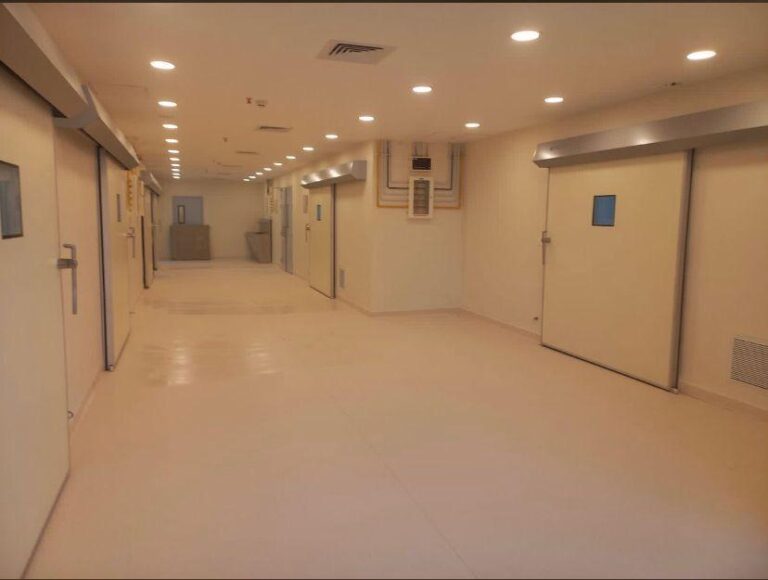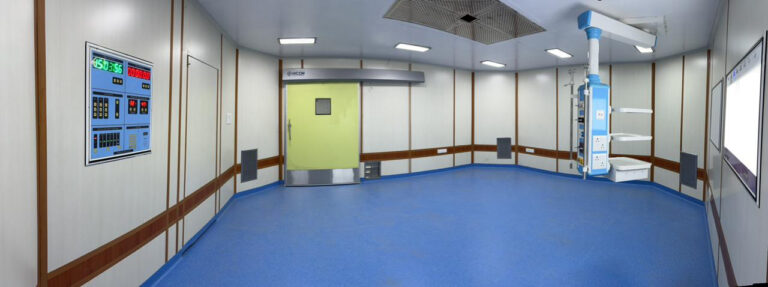In healthcare facilities, doors play a crucial role beyond mere access. They contribute to patient safety, convenience, and infection control. One of the most beneficial types of doors for healthcare environments is the medical sliding door. These doors are designed to meet the specific demands of medical settings, offering a combination of durability, functionality, and hygiene. Let’s explore the key benefits of medical sliding doors in healthcare facilities and why they are a smart choice for hospitals, clinics, and other medical establishments.
1. Enhanced Infection Control
Infection control is a top priority in healthcare settings, and medical sliding doors contribute significantly by reducing touchpoints. Unlike traditional swing doors, which require pushing or pulling, sliding doors can be operated hands-free, especially when equipped with automatic sensors. This touchless operation minimizes the spread of germs and bacteria, creating a safer environment for both patients and healthcare workers.
2. Space-Saving Design
Space is often at a premium in healthcare facilities. Sliding doors are designed to optimize space usage by eliminating the need for a door swing radius. This allows healthcare providers to make the most of their available space, ensuring that rooms can accommodate essential medical equipment, hospital beds, and personnel movement without obstructions. Additionally, sliding doors are ideal for smaller patient rooms or narrow corridors, where every inch of space counts.
3. Improved Accessibility
Accessibility is another critical aspect of healthcare design. Medical sliding doors offer a barrier-free entry that makes it easier for wheelchair users, patients on gurneys, and healthcare workers carrying equipment to move through doorways effortlessly. With wide, unobstructed openings, these doors ensure that patients and staff can navigate the facility smoothly, reducing the risk of accidents and delays.
4. Noise Reduction
Healthcare facilities are busy environments where noise levels can impact patient recovery and staff concentration. Medical sliding doors are designed with noise reduction in mind. Their smooth operation helps reduce the noise caused by slamming doors, creating a quieter, more peaceful atmosphere. This is especially beneficial in areas like patient recovery rooms, neonatal units, and intensive care units, where a calm environment is essential for patient well-being.
5. Enhanced Privacy
Privacy is essential in healthcare settings, whether for patient confidentiality or comfort. Medical sliding doors offer excellent privacy options, as they can be equipped with opaque or frosted glass, or even soundproof materials. This ensures that patients have the privacy they need during consultations, examinations, or recovery, helping them feel more at ease.
6. Energy Efficiency
Healthcare facilities often have strict requirements for temperature and humidity control. Medical sliding doors help maintain a controlled environment by minimizing air leakage. When closed, they form a tight seal, which is particularly useful in maintaining climate control within operating rooms, laboratories, and other sensitive areas. By keeping temperatures stable, these doors contribute to energy efficiency and help reduce utility costs.
7. Durability and Low Maintenance
Medical sliding doors are built to withstand the high demands of healthcare environments. They are typically made from durable materials like stainless steel or high-grade aluminum, which are resistant to wear and tear. Additionally, many models feature easy-to-clean surfaces that can withstand harsh cleaning agents, ensuring that they remain hygienic and in good condition over time. Their robust construction also means fewer maintenance issues, reducing downtime and repair costs for the facility.
8. Customizable Features
One of the major advantages of medical sliding doors is their ability to be customized to meet the specific needs of a healthcare facility. Options like automatic sensors, fire-rated materials, anti-bacterial coatings, and integrated windows provide flexibility in terms of design and functionality. This means that healthcare providers can select features that align with their specific operational and regulatory requirements.
9. Aesthetic Appeal
The appearance of a healthcare facility can have a positive impact on patients’ perception of the care they receive. Medical sliding doors can be designed to enhance the overall aesthetic of the facility. With a range of finishes, colors, and designs available, these doors can be tailored to fit seamlessly into the facility’s interior design, creating a modern and welcoming atmosphere.
10. Increased Efficiency in Emergency Situations
In emergency situations, quick access is crucial. Medical sliding doors, particularly those with automatic opening systems, allow staff to move patients through doorways swiftly and without delay. This can be life-saving in critical scenarios where every second counts. By facilitating rapid movement, these doors help ensure that emergency procedures can be carried out efficiently.
Conclusion
In summary, medical sliding doors offer a range of benefits that make them a smart investment for healthcare facilities. They enhance infection control, optimize space, improve accessibility, and contribute to a more efficient and pleasant healthcare environment. For hospitals, clinics, and other medical establishments, these doors are an essential component in delivering high-quality care.
At HIKOM International LLP, we understand the unique requirements of healthcare environments and offer high-quality, customizable medical sliding doors to meet these needs. Contact us today to learn more about how our sliding door solutions can enhance your facility’s functionality, hygiene, and overall patient experience.


